Sri Lankans reflect on UN vote
Al Jazeera speaks to a cross-section of people on the island nation about the upcoming international probe.

Jaffna and Colombo, Sri Lanka – The United Nations Human Rights Council has voted for a resolution that paves the way for an international investigation into alleged rights abuses in the final phase of Sri Lanka’s civil war.
Sri Lanka’s government defeated Tamil rebels, popularly known as Tamil Tigers (LTTE), in 2009, ending almost three decades of conflict that claimed about 100,000 lives.
Both sides have been accused of committing war crimes.
However, questions have been raised due to the huge number of civilian deaths, with one UN report saying that as many as 40,000 people, mainly members of the Tamil minority, may have been killed, mostly by government forces at the end of war.
Supporters of Sri Lanka’s government, mainly from the Sinhala ethnic majority, rallied in the capital, Colombo on Thursday, against the resolution. Many Tamils, however, welcomed the UN vote.
Al Jazeera spoke to a cross-section of people on the island nation about the upcoming international probe.
| Mary Gunawathy Varatharajah, former Tamil Tiger fighter |
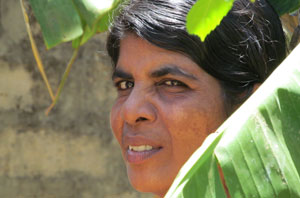 |
| [Dushiyanthini Kanagasabapathipillai/Al Jazeera] |
I am a witness, victim and survivor of 26 years of brutal war. My husband who was a senior commander, surrendered to government security forces in May 2009. I have not seen him since then. There are many women like myself who are in search of their loved ones. I need to know what happened to my husband. Justice and accountability should be brought to the families of the disappeared and to the families of those who were killed.
I do not trust the local authorities to carry out the investigations on alleged war crimes because there is no transparency and it is not credible. But I am willing to testify myself before an international panel. It is late, but international investigations are a step towards accountability and truth-seeking.
| Piyadasa Kulathunga, vegetable vendor in Colombo |
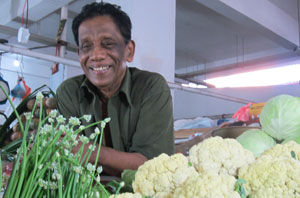 |
| [Dushiyanthini Kanagasabapathipillai/Al Jazeera] |
President Mahinda Rajapaksa has united the country by ending the 26-year-long bloody war. There are no more bomb blasts in the city of Colombo, we can [now] travel anywhere in the country, including the north and east without any fear. The armed forces have sacrificed their valuable lives to safeguard the motherland, their sacrifices should be honoured.
The government should not allow the international investigations to proceed. The international community is biased towards the Tamils and is trying very hard to divide the country. They have no right to interfere in the sovereignty of our country. They should mind their own business, and should not tell us what to do.
| Father Marimuthupillai Sathivel, Anglican priest and human rights activist |
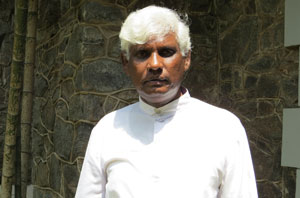 |
| [Dushiyanthini Kanagasabapathipillai/Al Jazeera] |
I criticise the resolution which was adopted at the United Nations Human Rights Council because it does not address the political issue [of Tamil alienation] at all. Unless the government of Sri Lanka addresses the political issue wholeheartedly and brings a lasting solution, the country cannot achieve sustainable peace, despite the adoption of the resolution and the international pressure.
It also does not mention and urge the government of Sri Lanka to repeal the draconian Prevention of Terrorism Act.
There is no mention about the human rights violations committed by the other armed groups which were active during and after the war.
| Rajeshwary Sharma, Tamil mother of a missing son |
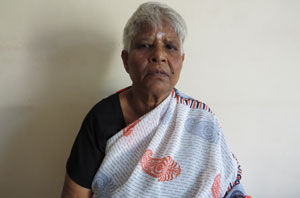 |
| [Dushiyanthini Kanagasabapathipillai/Al Jazeera] |
I am glad to note that finally the call was made for an international investigation. I am willing to testify before the international panel of experts. Passing the resolution brings hope for the families of the disappeared.
| Annamalai Navaratnam, garland maker |
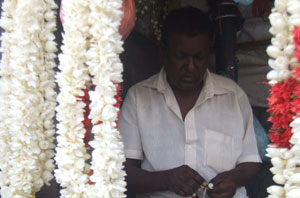 |
| [Dushiyanthini Kanagasabapathipillai/Al Jazeera] |
Tamils have suffered a lot in the past due to the civil war. [The] resolution will help to promote [the] reconciliation process, while bringing justice to the people who have been victims of war.
| Mohamed Farook Iqbal, tuk tuk (auto-rickshaw) driver, Colombo |
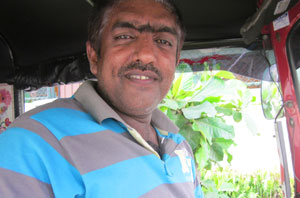 |
| [Dushiyanthini Kanagasabapathipillai/Al Jazeera] |
Sinhalese, Tamils and Muslims co-exist in a united Sri Lanka. It is a wrong move by the Western world and the draft resolution reflects its own agenda.
Sri Lanka is a democratic republic – the government knows how to protect and respect its citizens.
Western powers don’t have to command us. There are no checkpoints in the country – all communities are enjoying peace since May 2009. All citizens of Sri Lanka should get together and prevent the proposed international investigations from proceeding.
| Nadarajah Ravindrarajah Kurukkal, Hindu priest in Kilinochchi District, a former war zone |
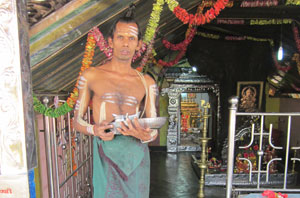 |
| [Dushiyanthini Kanagasabapathipillai/Al Jazeera] |
It is too late to call for an international investigation. The international community didn’t come forward to stop the war when it was at its peak. I have suffered, more than I could – got displaced, lost belongings, lived under heavy shelling in an internment camp.
Now, I have resettled and have restarted my life. After we have lost everything, what is the point of having international investigations? The resolution will not help the reconciliation process and it will not make the dead come alive. Rather, it will disturb the prevailing peace in Sri Lanka, and ultimately, the innocent civilians will suffer once again. Is it possible for the United Nations Human Rights Council to bring the LTTE, which also committed war crimes, to justice and make them accountable?